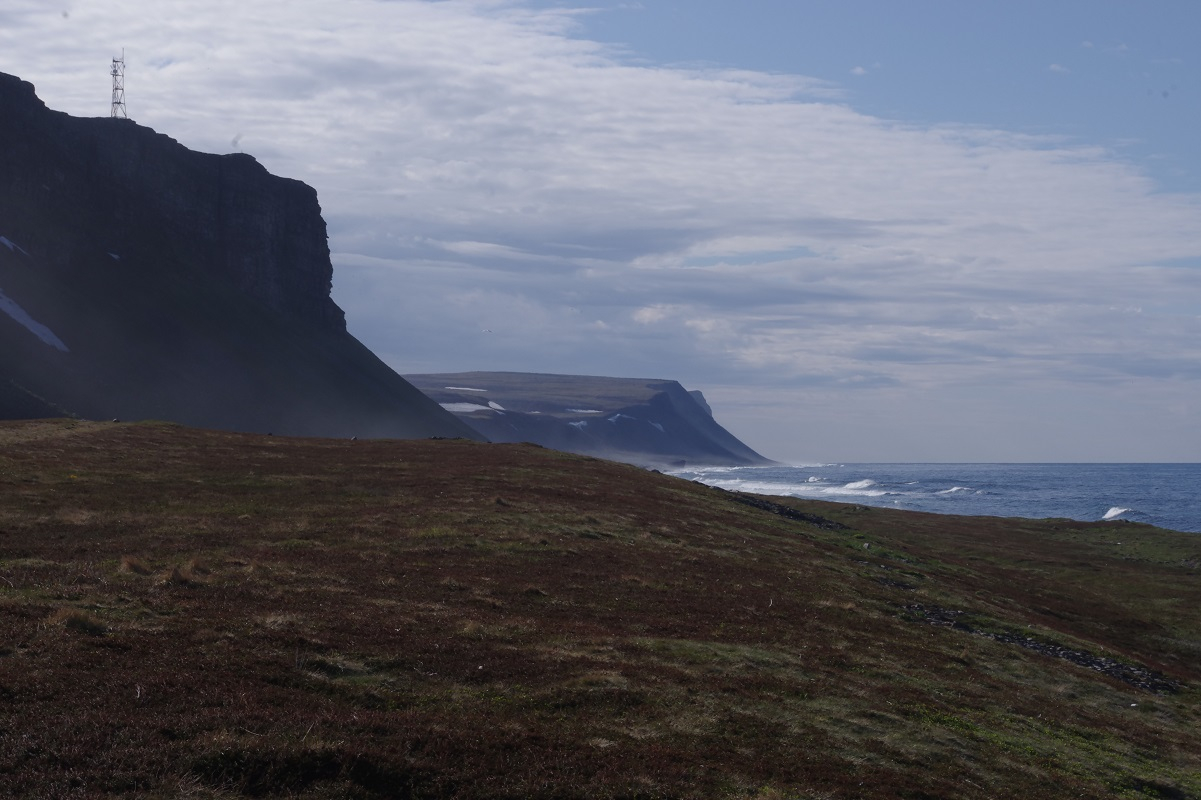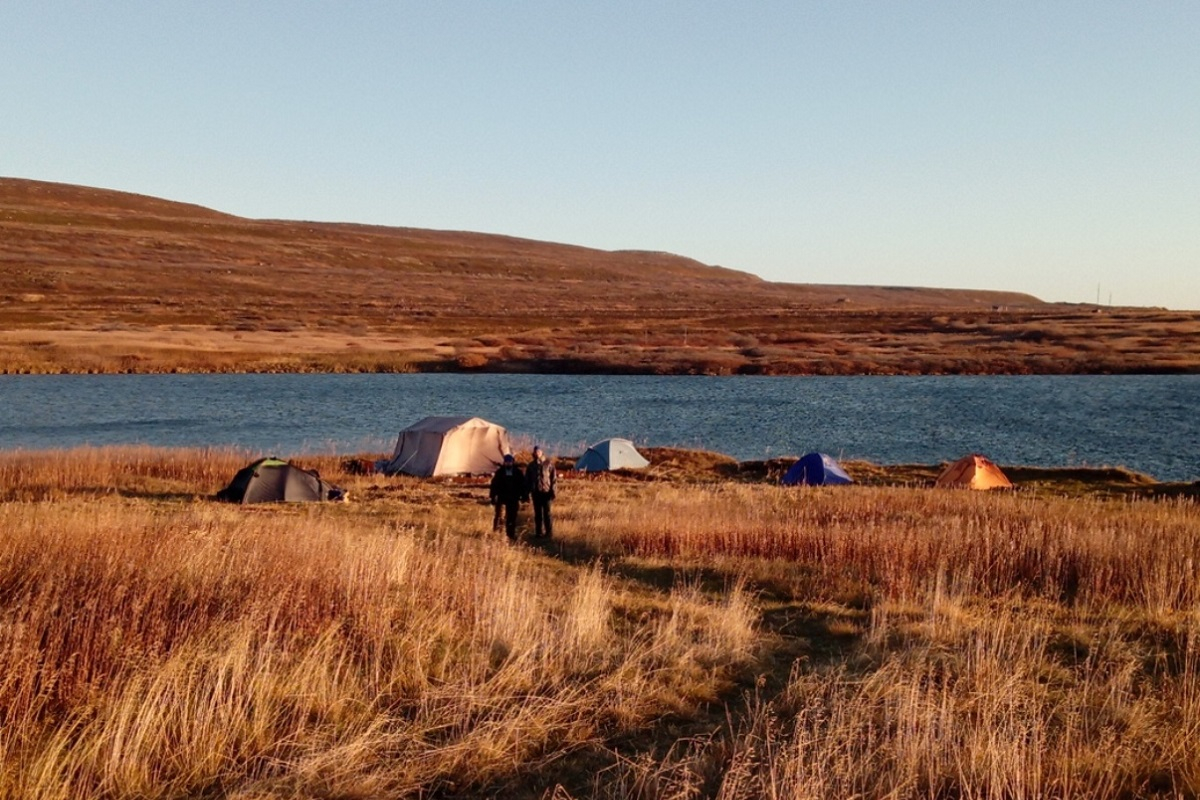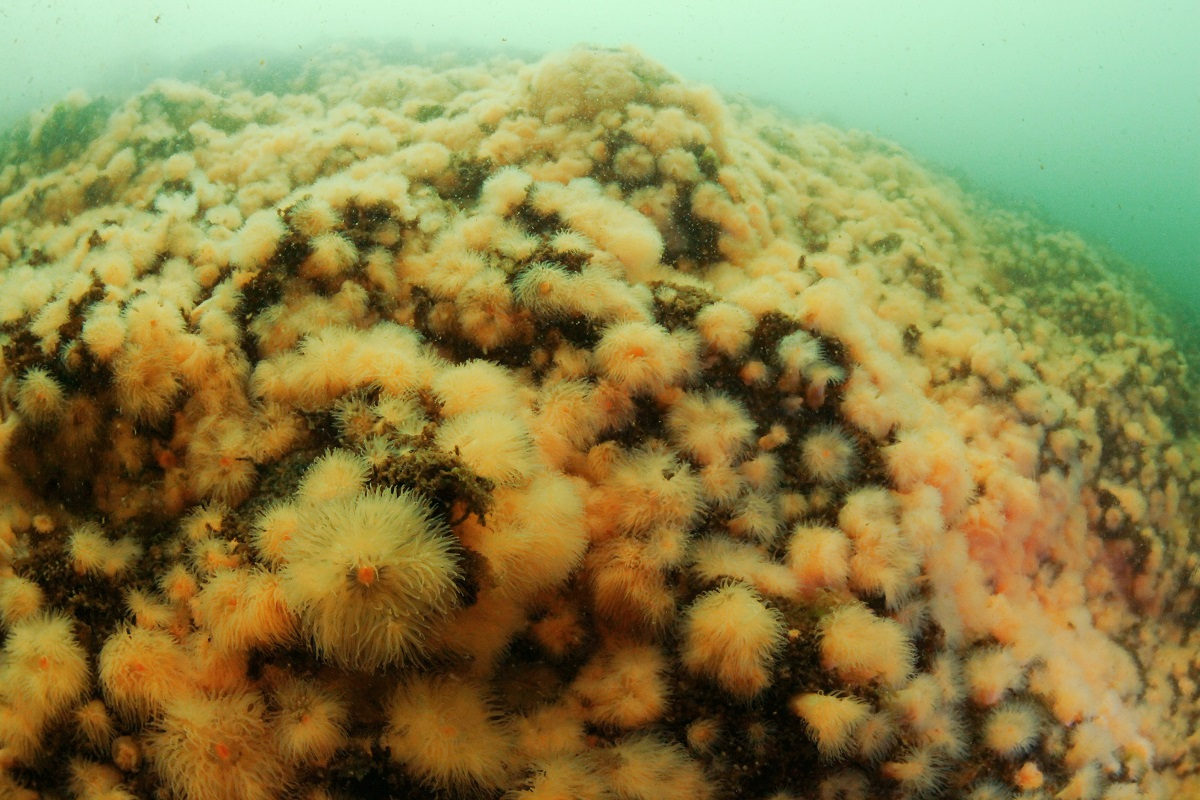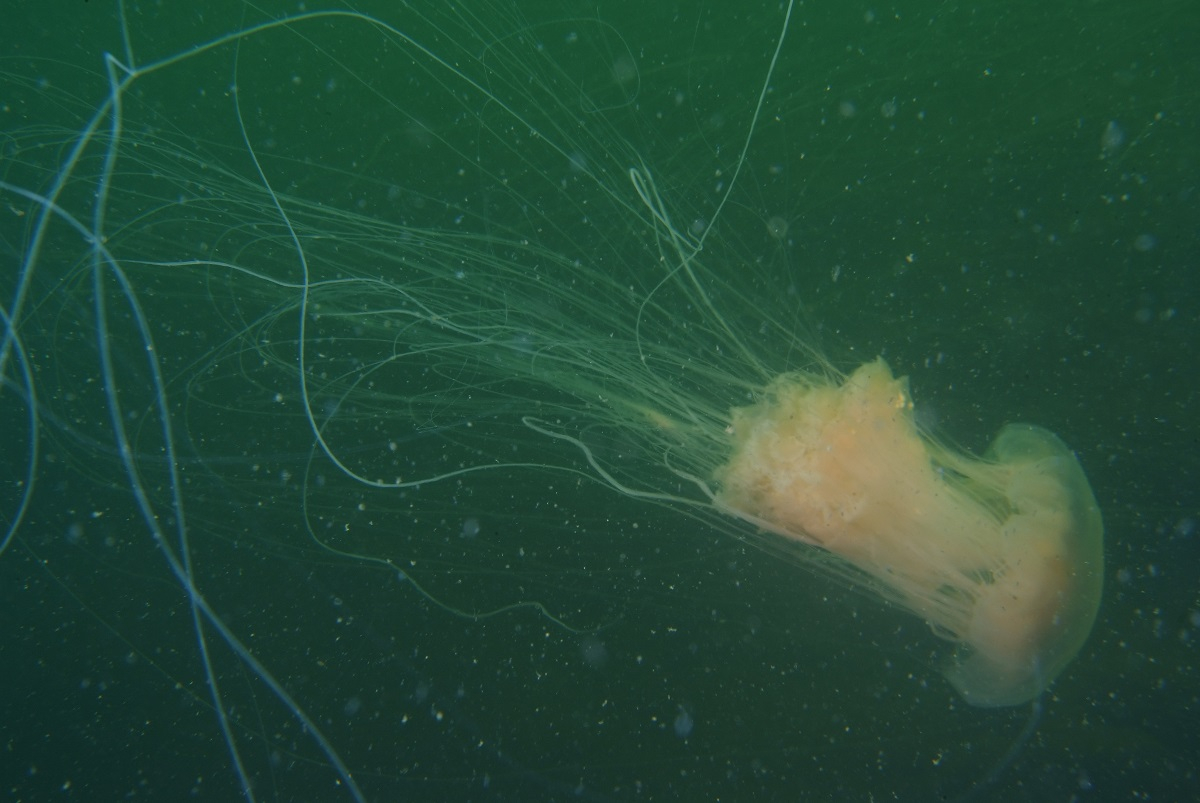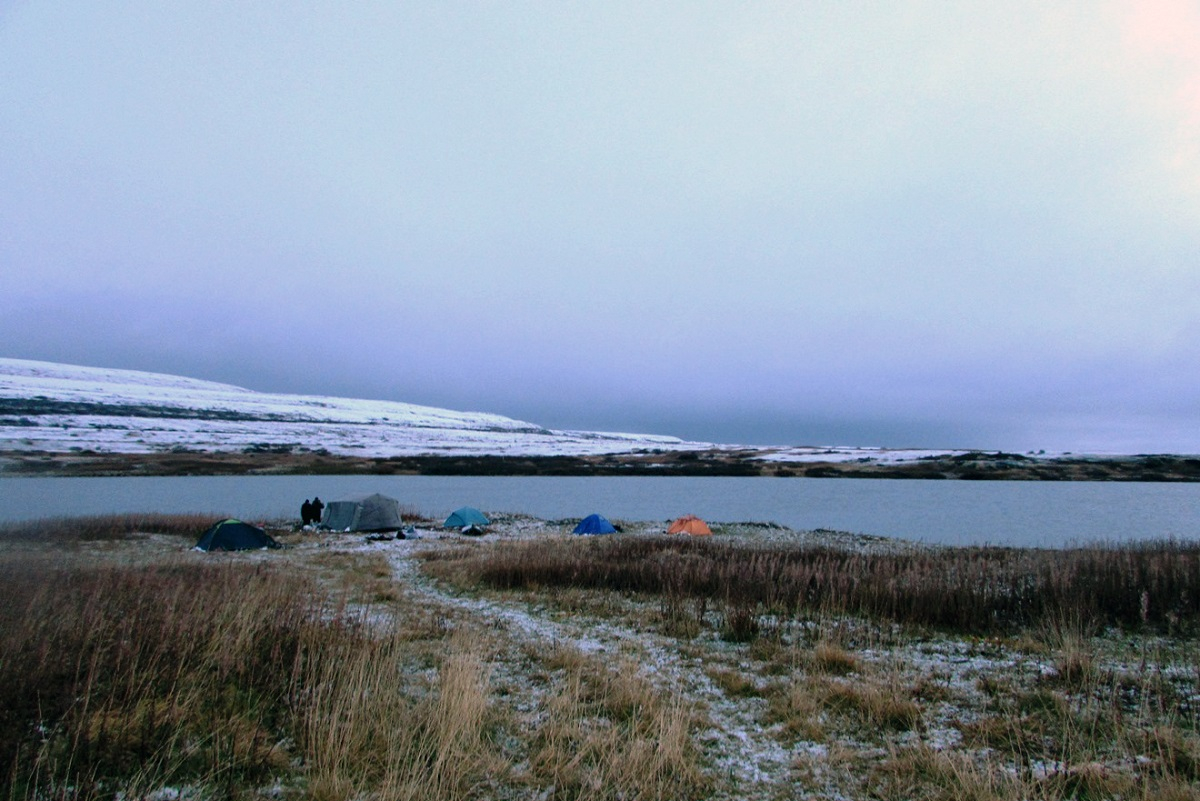Hydrobiologists from St Petersburg University: biodiversity of the unique Lake Mogilnoe halves over 100 years
Scientists from St Petersburg together with their colleagues from Murmansk and Moscow have presented the results of century-long monitoring of the first sea lake in the history of science – Lake Mogilnoe on Kildin Island in the Barents Sea. This waterbody is known for the fact that marine and freshwater organisms coexist in it. However, recent studies have shown that the layer of fresh water in the lake has completely disappeared which has led to the disappearance of many of its inhabitants. In the early 20th century, there were about 90 species of animals in this lake, but now there are about half as many.
The research results have been published in Polar Research.
The small lake with an area of 17 hectares and a depth of about 16 metres has always consisted of three layers: the upper layer of fresh water; the middle layer of sea water; and the bottom layer of sulphurous or ‘dead’ water, where there is no oxygen and only some bacteria can live. For a long time, Mogilnoe was considered the only anchialine lake where water exchange with the sea occurs underground: the tide forces the water to go through loose earth rocks at the depth of five to eight metres. Later, similar lakes were found, for example, in Croatia and Indonesia. However, Mogilnoe is still the only known Arctic lake of its kind.
The lake was discovered at the end of the 18th century by Nikolai Ozeretskovsky, a Russian natural scientist. He was still a student of the Academic Gymnasium at that time. 1883 saw the beginning of observations of the distribution of various parameters of water in the lake, as well as plankton and benthos. The monitoring is still under way. Lake Mogilnoe is associated with the studies of prominent experts in marine zoology: Nikolai Knipovich and Konstantin Derjugin. The latter founded the Department of Ichthyology and Hydrobiology at Leningrad University in 1929.
‘If we measure the size of scholarly knowledge about this waterbody by the number of pages devoted to academic papers per cubic metre of water, then Lake Mogilnoe is without a doubt the most studied marine waterbody in Russia, if not in the world,’ said Associate Professor of St Petersburg University Petr Strelkov, the lead author of the article and Candidate of Biology. ‘However, this amount of work did not help predict the alterations in the lake’s ecosystem that have happened over recent years.’
Despite the 130-year history of the study of the lake, alarming changes in it were noticed only at the beginning of the 21st century. In 2003-2007, hydrobiologists and zoologists from St Petersburg University recorded a decrease in the freshwater layer. The new data for 2015-2018 showed that the process only accelerated. The upper layer disappeared completely and it appears seasonally only thanks to melt water.
‘Before our eyes, unexpected and alarming changes have occurred in the lake,’ said Petr Strelkov. ‘The bottom layer of water that is poisoned by hydrogen sulphide has expanded by two metres and filled one third of the volume of the lake. The upper freshwater layer became thin initially, and then completely disappeared. The changes in the layering of the lake water have influenced the distribution and composition of its biological communities. Over the past 15 years, everything has changed much more than it did over the 120 years of previous research.’
According to Petr Strelkov, if in 2007 the salinity of the upper layer was about three grams of salts per litre, today it is already eight grams. The researchers find it difficult to say why this is happening. In their opinion, the changes are not related to direct human influence, because Kildin Island is uninhabited. However, the adverse effects may be the result of climate warming, which is sure to be due to the anthropogenic impact on the environment.
The fact is that the temperature increase in the Barents Sea region is not compensated by the large amount of precipitation. As a result, the amount of salt water in the lake is increasing and the layering of the waterbody is changing. The hydrogen sulphide layer is moving higher due to the weakening of vertical differences in water density. It is not really possible to stop this process. However, as the researchers emphasise, this does not mean that Lake Mogilnoe is not worth studying any more.
‘Hydrogen sulphide, or anoxic, zones are what are expected to be in the ocean in the future,’ explains Petr Strelkov. ‘Due to climate changes, oxygen dissolves poorly in warm water. Moreover, because of pollution, a lot of organic matter is getting into the ocean. A lot of valuable gas is consumed for its oxidation; as a result, ‘dead’ zones are formed at depths. They exist, for example, in the Black Sea and the Baltic Sea. The same process is also beginning in the oceans. We do not know yet how oxygen deficiency will affect the underwater world or, say, fishing. Lake Mogilnoe is a kind of aquarium in which these consequences can be observed and studied.’
This research is supported by grants from: the Russian Foundation for Basic Research (No 16-04-00723-a and No 19-05-00377-а); and the Russian Geographical Society (254 13-218-P).


